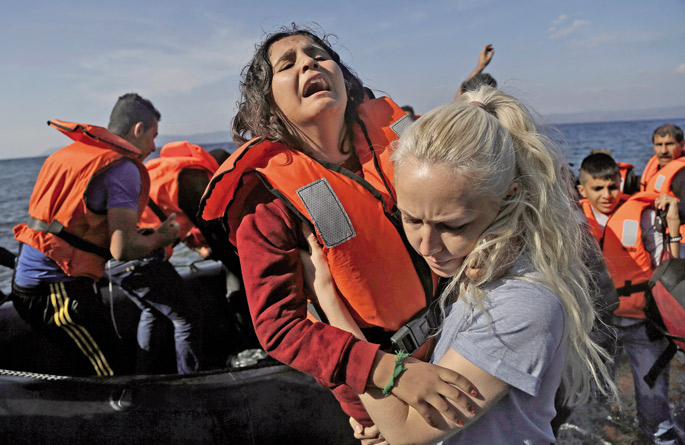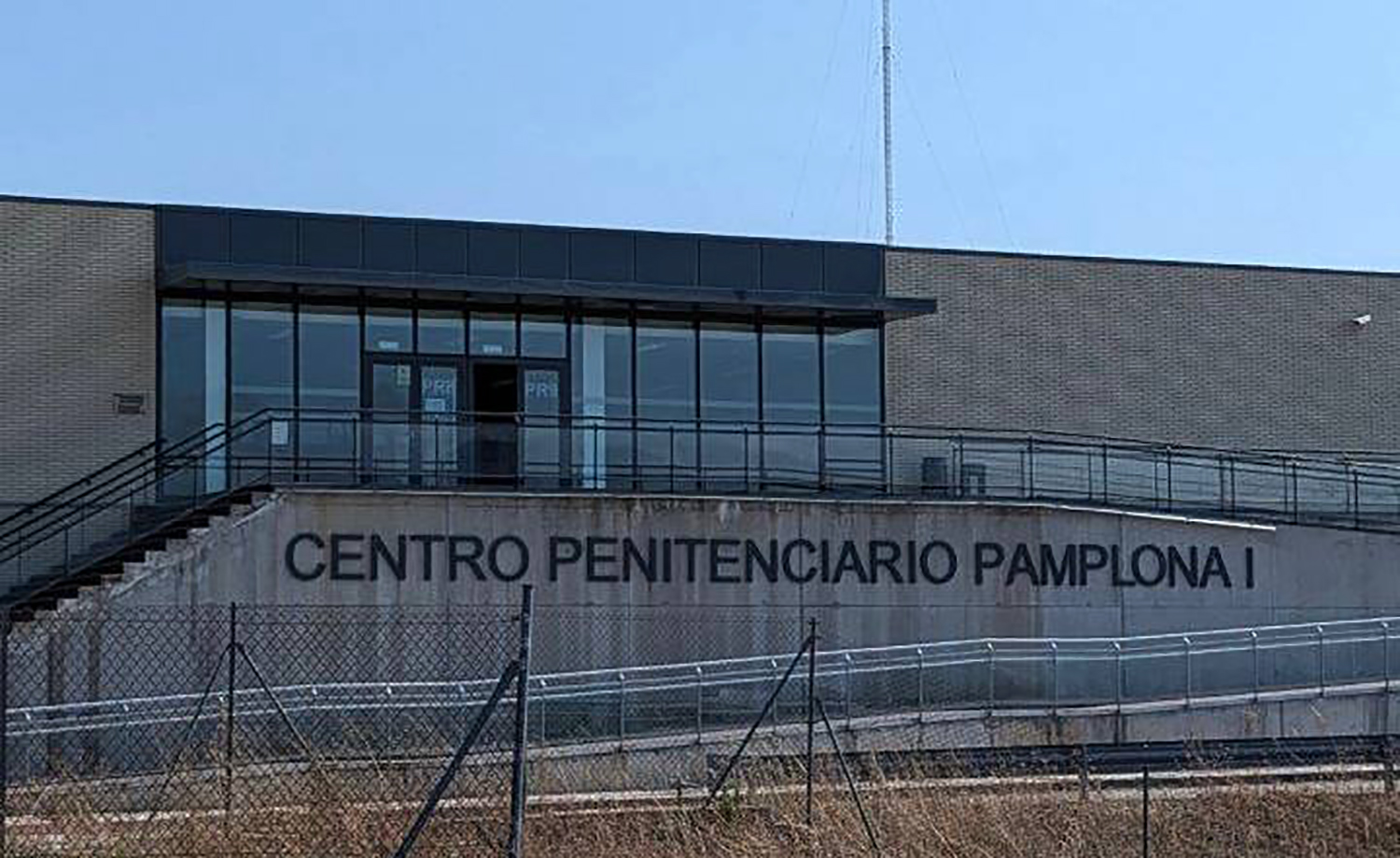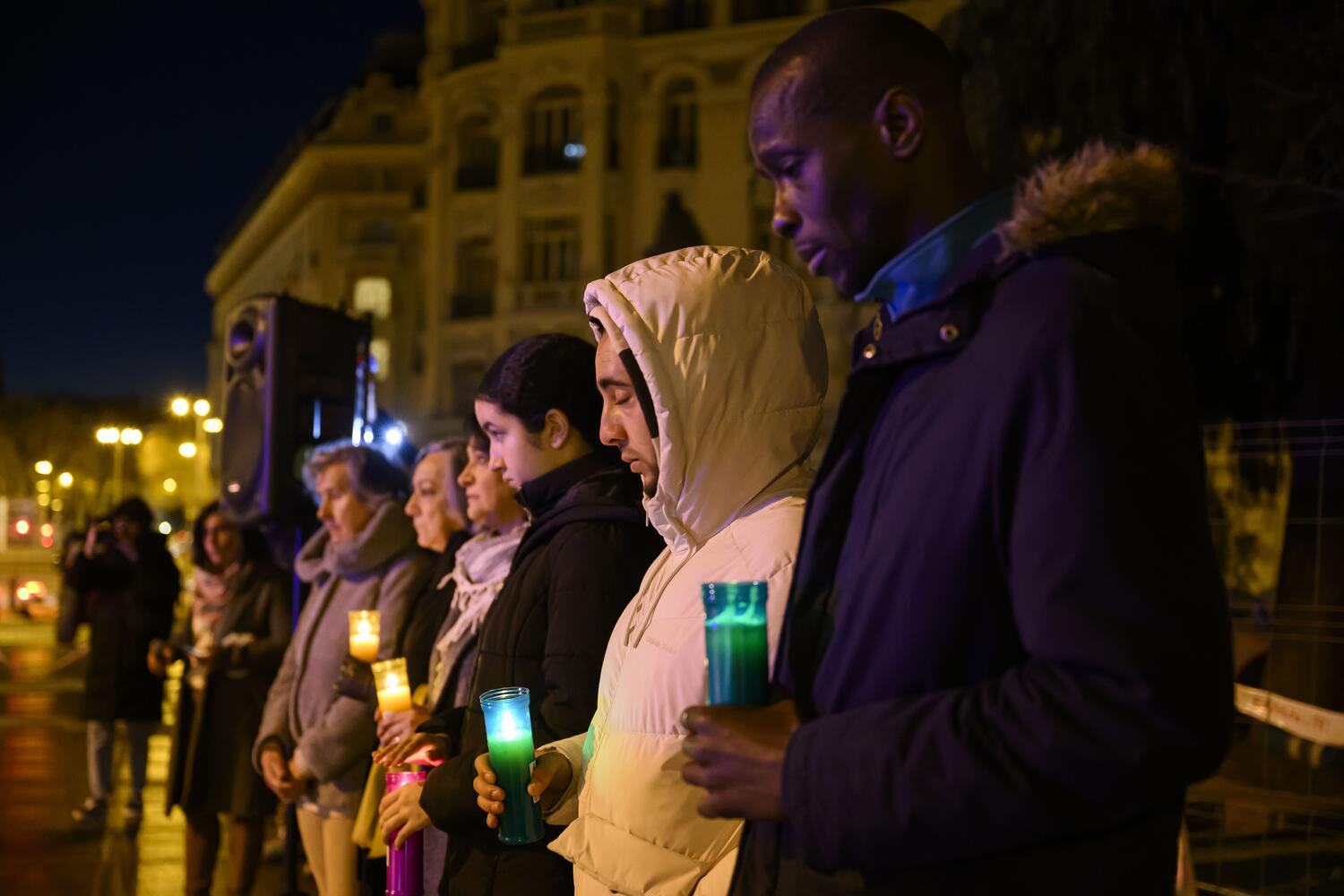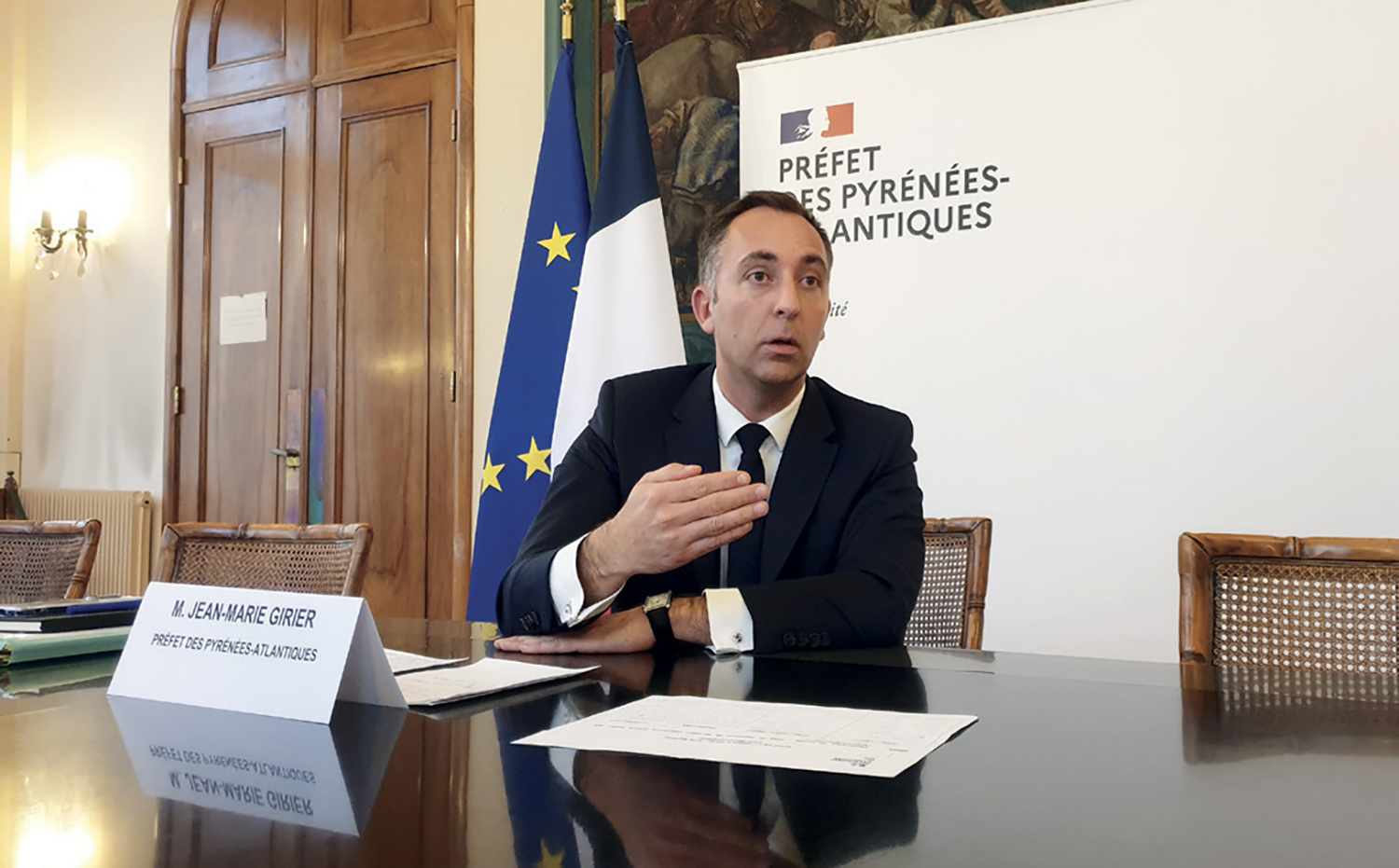Greece cannot stop another million fugitives heading for Europe
- Although many Europeans already complain that they have welcomed too many immigrants at home, in 2016 they will realise that the refugee crisis has only just begun. The most conservative estimates come this year one million more, mainly from the Middle East. Coinciding with the economic crisis, the political architecture of Europe is threatened by the arrival of people who have come to seek a way of life by fleeing hell.

Europe is not at the forefront of the global refugee crisis, writes in the magazine Foreign Policy Christian Caryl: “Because in the chronicles and images of the media we are shown people through the Hungarian camps and on boats loaded to the neck on the Mediterranean coast, we have believed that things are like this. But the reality is very different at the planetary level. The data show that the majority of the displaced population lives in poor countries that have nothing to offer, that they have no prospect of change and that in the future this will cause great damage”.
Jordan, for example, has about 700,000 refugees in its refugee camps for 6.6 million inhabitants of a country with very little economic capacity. Carlyl has recalled a historical example that is not so old, that Pakistan began to lose stability in the 1980s when millions of fugitives arrived in Afghanistan. In other words, the political and social stability of Lebanon, Turkey, Jordan and the other countries will not be affected by the floods.
But Europeans don't care about that, don't tell Denmark or the Dutch people that Jordan is getting stricter. The citizens of Europe feel that the new immigrants have changed a great deal of their lives, as there are not many in the vicinity of them: they have watched them closely on television. So far it's enough, they say -- not realizing that more waves come to the porch.
There is no longer any paradise in Europe. Denmark and Switzerland will take care to take away jewels and money from refugees fleeing in Switzerland. Germany too. Norway sends the Syrians back to Russia. Sweden, the Netherlands, nothing to say about Hungary or the countries that were Communists ... Humanity has had to cut down a lot among the citizens when politicians decide such things in the run-up to the election results.
In an attempt to prevent a new wave from the spring of 2016, EU governments are multiplying their proposals. Build more wire barriers. Border closure. Deport the survivors to the homeland. Sending more military personnel to Greece to help monitor borders. It pays Turkey to keep refugees longer on its land.
Turkey, Greece and Germany have a special role in managing the giant wave of immigrants, as explained by the English journalist Paul Mason in the chronicle “Europe’s refugee story has hardly begun” (the history of refugees in Europe has only just begun).
The famous public television journalist Channel 4 believes that Germany faces difficult decisions: “If you’re willing to accept a deficit in state budgets to welcome asylum seekers, how can you explain that the citizens who have been crushed by the savage cuts of Angela Merkel didn’t have money for infrastructure and other investments?”
It is true that the majority of displaced persons have targeted Germany, about one million last year. The need to shelter them has changed the way of life of many towns and cities: places of reception, housing, food, language teaching, schooling of children, seeking employment of adults… As an example, Franco-German television ARTE has shown on February 2 how they do it in the village of Sasbachwald, with 700 refugees in a municipality of 2,400 inhabitants. The case of Baigorri, which has become popular in our country – half a hundred, a large number for those here – seems a little more than that of Sasbachwald.
Sexist assaults in Cologne lifted the dust, but it's much more than that, in the 2nd century. The largest mass movement ever known in Europe since the World War has shaken the German economy and society. Businesses around the refuge of fugitives: those who sell probitional houses like containers and security companies are congratulated, adapting the most rounded business of all time.
Politics versus people of heart
The wave of immigrants reaches Europe through Turkey, where Turkey is plunged into a global political recession, defined by Paul Mason as moral implosion. Recep Tayyip Erdogan has made the Kurdistan region an unprecedented war camp. Two journalists from Cumhuriyet magazine are sentenced to life imprisonment for having published, after investigation, that the Ankara authorities have supplied weapons to the Islamic State.
“It is not the decision of a singular judge – says Mason – but it is Erdogan himself who has asked for 30 years in prison. And Erdogan’s Turkey still wants to join the European Union, is still a member of NATO and so far no one from Brussels has spoken a word to it.”
On the one hand, the European Union, increasingly right-wing, Turkey, on the other, has Greece trapped in its brow. He's about to slaughter himself diplomatically. Faced with the impossibility of controlling a sea bank as beautiful as it is complicated, an ultimatum has been sent from Brussels that if in a few months it does not get the source from Turkey to be expelled from the Schengen Treaty. Since they are mocking the Greeks, there are some who have proposed building a new verge to isolate Greece... On the part of Macedonia, not the European Union!
The sting in one hand and the carrot in the other, the German diplomats have filtered that Merkel would be willing to stop the fugitives to reward Greece: The cancellation of the Greek debt in exchange for keeping 400,000 refugees imprisoned in the camps in Greece.
Gideon Rachman of the Financial Times has confessed in more detail to the plan: “The model could be the II. Camps built after the World War for exiles. (...) The main strands of the agreement would be simple. Greece agrees to seal it at the head of the North with the help of the European Union, thus blocking the arrival of people in Northern Europe. As a counterpart, Germany agrees to forgive much of the Greek debt and to provide special assistance to Greece so that it can manage the refugee crisis.”
The huge economic crisis of 2008, in this way, could make a new leap for Greece: we've destroyed the economy, you've destabilized society, we've denied you breath, but now we hire you as a foreign policeman.
Out of politics, fortunately, there are people left, for Paul Mason: “In silence and without reticence, there has been the greatest movement of solidarity ever seen across borders to help refugees. Churches, NGOs, city halls, social services, more people living outside the big agendas -- they're all going out to people, giving food, drinking and clothing, and trying to make them feel at home."
Aljeriatik datoz Mohamed eta Said [izenak asmatuak dira], herri beretik. “Txiki-txikitatik ezagutzen dugu elkar, eskolatik”. Ibilbide ezberdinak egin arren, egun, elkarrekin bizi dira Donostian, kale egoeran. Manteoko etxoletan bizi ziren, joan den astean Poliziak... [+]
Kritika artean abiatu dira Gasteizko Arana klinika zena Nazioarteko Babes Harrera Zentro bilakatzeko obrak. Ez auzokideak, ez errefuxiatuekin lan egiten duten gobernuz kanpoko erakundeak, ez PSEz bestelako alderdi politikoak ez daude ados proiektuarekin: makrozentroen ordez,... [+]
Europako Batzordeak lege-proiektu berri bat aurkeztu du asteartean. Dokumenturik gabeko pertsonak jatorrizko herrialdeetara edo igarotze-herrialdeetara deportatzeko prozesua areagotzea eta azkartzea helburua du.
Harrera-herri euskaldun nola izan gaitezkeen galdetu zion Leire Amenabarrek bere buruari eta parean zituenei iaz, Gasteizen, harrera-hizkuntzari buruzko jardunaldietan, eta galdera horrexetan sakontzeko elkartu gara berarekin hilabete batzuk geroago. Amenabarrek argi du... [+]
“Bi pertsona mota daude munduan: euskaldunak, batetik, eta euskaldunak izan nahiko luketenak, bestetik”. Gaztea zela, Mary Kim Laragan-Urangak maiz entzuten omen zuen horrelako zerbait, Idahon (AEBak), hain zuzen. Ameriketan jaio, hazi, hezi eta bizi izandakoak 70... [+]
Aurrekoan, ustezko ezkertiar bati entzun nion esaten Euskal Herrian dagoeneko populazioaren %20 atzerritarra zela. Eta horrek euskal nortasuna, hizkuntza eta kultura arriskuan jartzen zituela. Azpimarratzen zuen migrazio masifikatua zela arazoa, masifikazioak zailtzen baitu... [+]
Hamasei migrante atxilotu zituzten otsailaren 6an Baionan, etorkinen eskubideen aldeko elkarteek salatu dutenez. Dirudienez, Baionako prokuradoreak eman zuen agindua. Operazioa autobus geltokiaren eta Pausa harrera zentroaren artean gauzatu zuen poliziak, tartean, adingabekoak... [+]





















